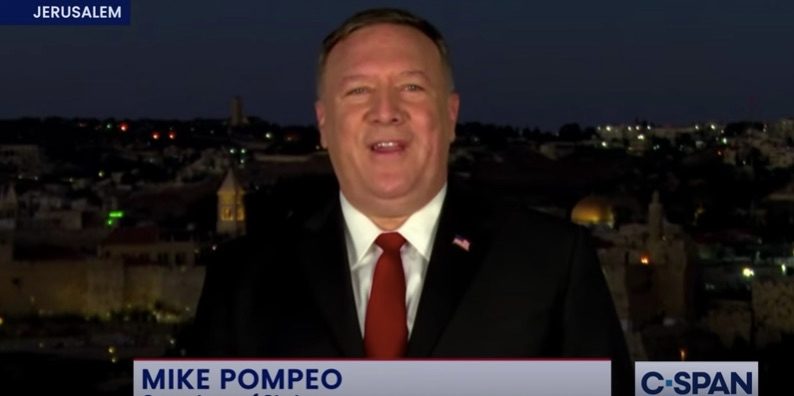特朗普政府官员在共和党国民大会期间的演讲已经举起道德红旗。

【原文】
Ethics experts are raising warning flags that Republican National Convention speeches at the White House by U.S. President Donald Trump, officials in his administration, and by first lady Melania Trump could violate the Hatch Act, a federal anti-corruption law.
In layman’s terms, a Hatch Act violation occurs when taxpayer-funded federal resources and employees are used for political campaigning or activities. The law also tries to ensure that federal employees can serve the public in a nonpartisan manner, free of coercion.
In this case, ethics experts say Trump aides and speeches given on White House grounds are being used as part of the campaign to reelect Trump in November 2020 — which could be illegal. But these actions also break with ethics norms set by past administrations, and set a bad example, experts say.
While the RNC is being held in Charlotte, North Carolina, Melania Trump gave her speech on Aug. 25, 2020, from the White House Rose Garden, while President Trump will accept the Republican party’s presidential nomination on Aug. 27, 2020, on a stage set up on the South Lawn.
Other administration officials also speaking during the RNC include U.S. Secretary of State Mike Pompeo, White House adviser Ivanka Trump, counselor Kellyanne Conway, social media director Dan Scavino, and economic adviser Larry Kudlow, raising questions about the electioneering activities of federal employees.
They still cannot help with the set-up, and publicly-owned equipment can’t be used, however.
Trump’s planned acceptance speech on White House grounds violates ethics norms established by previous presidents, Goldstone said, noting that former presidents George W. Bush and Barack Obama set a precedent of establishing a clear line between public servants and political candidates by limiting political activity to the residential parts of the White House — areas not used for public business.
Pompeo’s speech, given while on an official State Department visit to Israel, prompted U.S. Rep. Joaquin Castro, D-Texas, vice chair of the House Foreign Affairs Committee, to launch an investigation on Aug. 25, 2020, “demanding answers on Secretary Pompeo’s participation in a political party convention in the course of official government work, which is a potential violation of federal regulations, U.S. state department policy, and the Hatch Act.”
Goldstone said that Pompeo’s speech blurred the line between politics and government service, as did decisions to accept speaking roles by other administration officials.
“The disregard for keeping business out of politics is out of step with the norms established by previous administrations of both parties,” Goldstone stated. “Whether or not the activity violates the Hatch Act or any other law, it clearly violates the principle that the law stands for: that public service is a public trust, and using public office for partisan political gain undermines the public’s trust in the government’s ability to conduct business impartially and without political influence.”
The House Foreign Affairs Committee posted to Twitter a directive sent to state department employees, telling them that they are barred from participating in their official capacity in political activities. The committee stated in the tweet that Pompeo’s RNC speech “violates legal restrictions and his own instructions to Department personnel.”
While past administrations have “stuck their toes in the water” when it came to flirting with the idea of using public resources for campaigning, the Trump administration has done a “cannonball into the swimming pool,” Shaub said. “This is of a magnitude that is unprecedented.”
This isn’t the first time the Trump administration has been accused of violating the Hatch Act. Officials have been reprimanded on numerous occasions by the U.S. Office of Special Counsel for doing things like using official social media accounts to promote or denigrate political candidates.
Conway, for example, has been found to be in violation for numerous instances in which she used her official position in the White House to publicly disparage Democratic candidates. In 2019, the U.S. Office of Special Counsel recommended that as a repeat offender who has shown disregard for the law, Conway should have been removed.